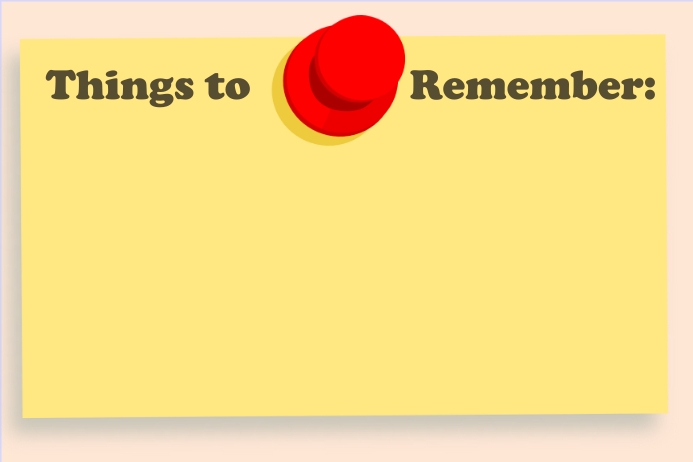
My office is exactly eleven steps from the waiting room. About a minute ago, I found myself standing out there; utterly clueless as to why I went in the first place. Whatever my perfectly good reason had been for taking those eleven steps simply vanished into thin air. I skulked back to my office and decided to turn my annoyance into something useful — like this week’s column.
Everyone has endured the elusive password, the vanishing keys or that pesky oven that might – or might not – be on. Or the front door that might or might not be locked. What is it about our mental storage and retrieval system that can be so exasperating?
As we try to do more and more in less and less time, what we call “multitasking” actually works against our ability to remember things. For something to be remembered, it has to be exciting or special. Throwing keys on the table is not exciting. Whatever I needed in the waiting room was, I guess, not very special. Based on this, we can come up with some useful tricks for improving our memory.
Dr. Zaldy Tan, author of “Age-Proof Your Mind,” offers a suggestion for episodes like my waiting room incident: Retrace your steps. By walking back to where you started, it’s possible you’ll remember what triggered your decision to go there in the first place. Indeed, pressuring yourself to remember something actually interferes with the recall process.
If I retrace my steps and still come up with nothing, I just tell myself, “Relax. It’ll come back.” This releases the immediate pressure and allows me to go back to other things.
As a mental health professional, I spend countless hours talking with people. In the course of these discussions, many clients will stop and say something like, “I don’t remember what I was going to say.” I remove the pressure by suggesting: “Don’t worry. It’ll come back.” It almost always comes back before the hour is over. Why? Because the stress is released and the subconscious has a chance to retrieve the lost thought, which most likely connects to our conversation.
What about situations where you lose your keys? Or your wallet? You don’t have the luxury to simply “forget about it.” In these more urgent circumstances you obviously have to retrace your steps. In this case, the resulting pressure helps you persevere in your search. If you constantly lose important items, then you’ll need to focus on prevention. Take psychologist Dr. Elizabeth Edgerly’s advice. “If you put your keys [or whatever] in the same place every day, you’ll always, without fail, know where they are.” The more you do something the same way, the more likely you are to remember it.
Association is another memory-enhancing technique. Do you ever worry that you didn’t lock the door? Or that perhaps you left the oven on? There are few things more annoying than going back, only to discover (in 99.99% of cases) that you did do what you thought you didn’t.
Associating something distinctive with an action can be helpful in remembering it. For example, singing a silly tune to yourself as you lock the door will help you remember it later. Dr. Edgerly points out that most people are visual learners, which explains why we rarely forget faces but often forget names. When you meet a new person, she suggests repeating the name to yourself and then using it at least once in conversation. “So, Murlene, how long do you plan to be in town?”
Memory problems can sometimes be a sign of increased stress. In these cases, you have to unlock the underlying causes to help open the door to a better memory and a less anxious life.
Door! Unlock! I just remembered why I walked out into the waiting room.
I left my keys in the front door.
Follow Dr. Hurd on Facebook. Search under “Michael Hurd” (Charleston SC). Get up-to-the-minute postings, recommended articles and links, and engage in back-and-forth discussion with Dr. Hurd on topics of interest. Also follow Dr. Hurd on Twitter at @MichaelJHurd1, drmichaelhurd on Instagram, Michael Hurd Ph.D. on LinkedIn, @DrHurd on TruthSocial
